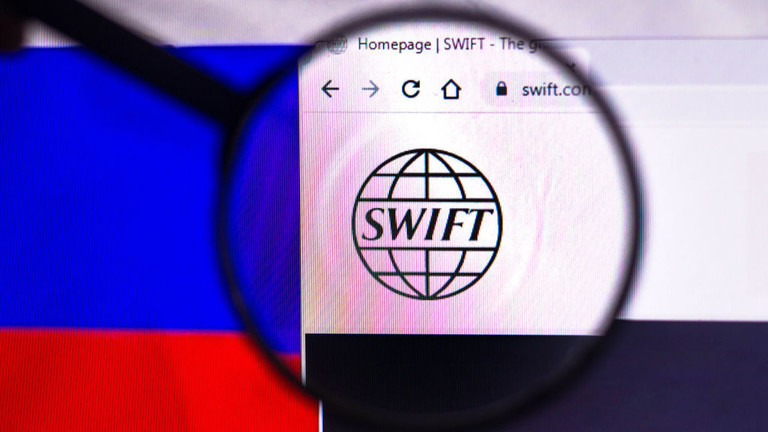Russian banks have been ordered to only use the country’s domestic financial messaging systems for transactions after the Bank of Russia has officially forbidden Russian financial institutions to use the SWIFT messaging system for transactions inside the country.
SWIFT is a private European company that operates an interbank information transfer and payment system.
The Russian regulator announced on Monday that, as of October, Russian banks will be obliged to only use domestic services for transferring messages on financial transactions whereas the use of SWIFT will be allowed only for international payments.
All information on domestic transactions from the Russian banks will now need to be transmitted through the SPFS, the Bank of Russia’s own financial messaging system, through the services of third-party Russian companies, or through the Bank of Russia’s own banking systems.
This, as the statement from the Bank of Russia reads, will ensure continuity, reliability, and security of data exchange when conducting intra-Russian transactions.
Created by the Bank of Russia in 2018 as a substitute for SWIFT – which boasts 11,000 financial organizations in more than 200 countries globally – on the domestic market, the SPFS coverage is still much smaller than that of SWIFT, but the system has been gaining momentum in recent months.
The Russian Central Bank announced in February that SPFS now has 469 participants, including 115 foreign entities from 14 nations. Faced with the constant threats to get disconnected from SWIFT, the EAEU and BRICS countries have also been expanding the use of their national systems for mutual settlements for a few years now.
After ten of Russia’s largest banks – including Sberbank, VTB, Otkrytie, Rosselkhozbank (the Russian Agricultural Bank), Novikombank, Promsvyazbank, Rossiya, Sovcombank, and MKB – were disconnected from the SWIFT system last year as part of Western sanctions, Russia was forced to start seeking alternatives to SWIFT in dealing with foreign partners.
Meanwhile, financial analysts have speculated that Moscow wants to leverage the upcoming renewal of the Black Sea Grain Initiative to reconnect the Russian Agricultural Bank to SWIFT.
Although figures show there has not been a significant drop in Russia’s exports, Moscow argues that keeping the Russian Agricultural Bank outside the SWIFT system slows down payments.
It seems highly unlikely that the West will give in to Moscow’s attempts to leverage its importance in the Black Sea Grain Initiative to ease pressure on its banks and relink its banking system to SWIFT, which would be seen as a major win for Russia.



